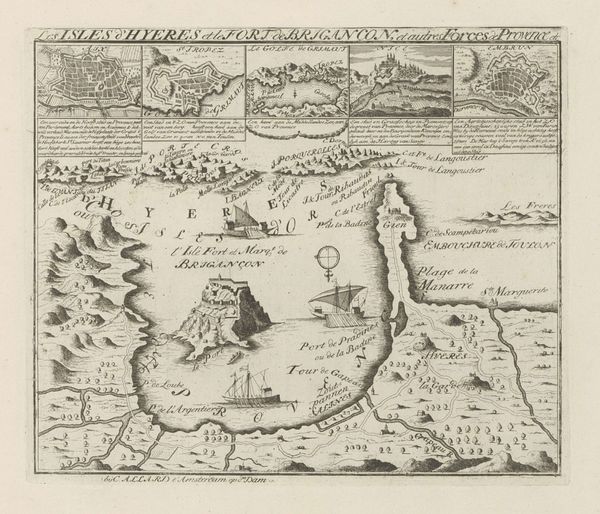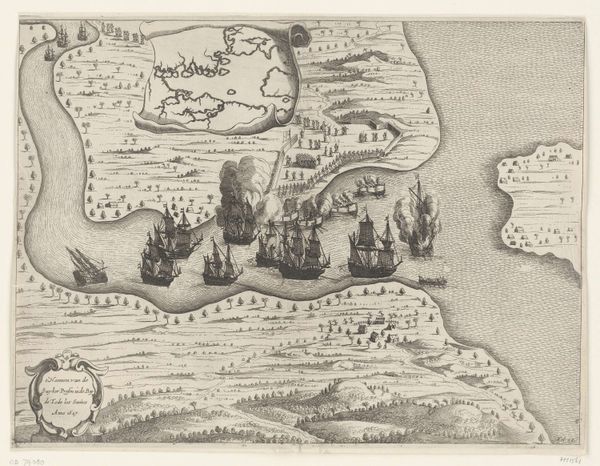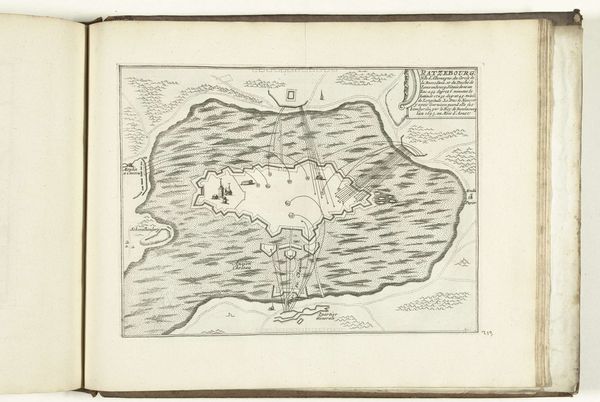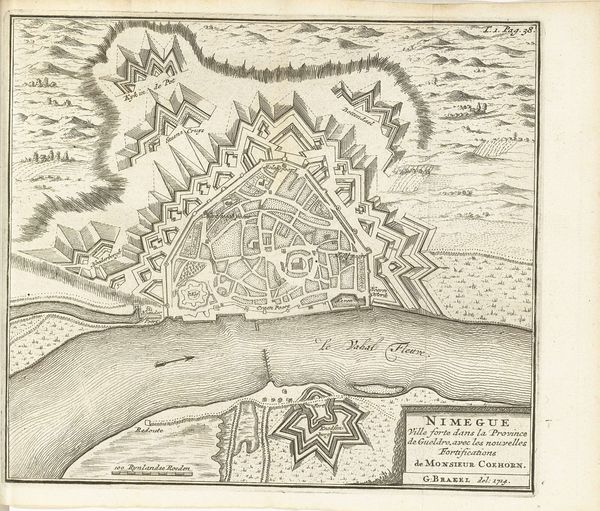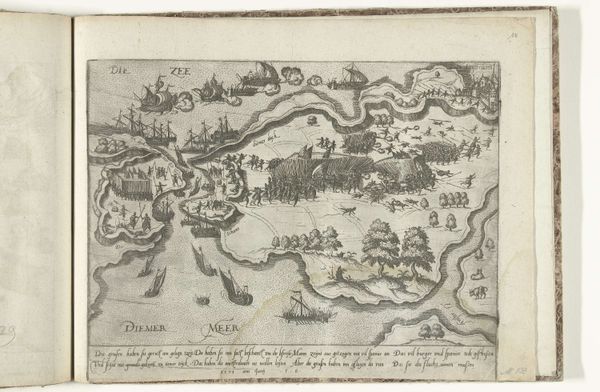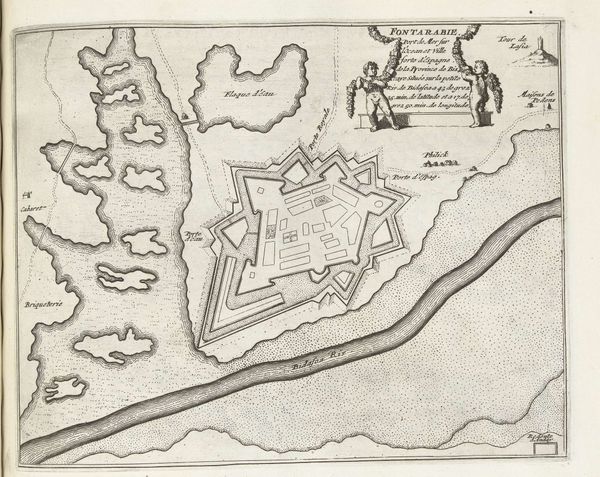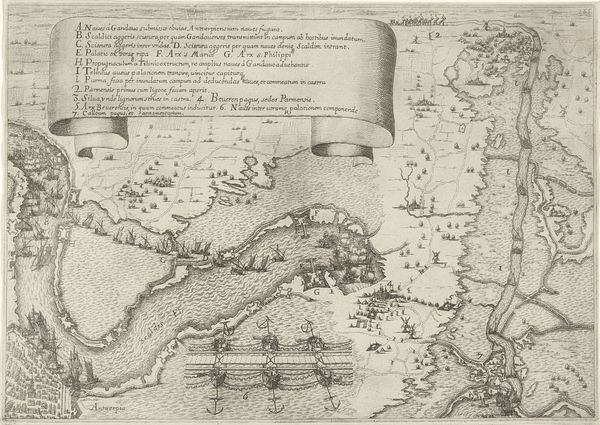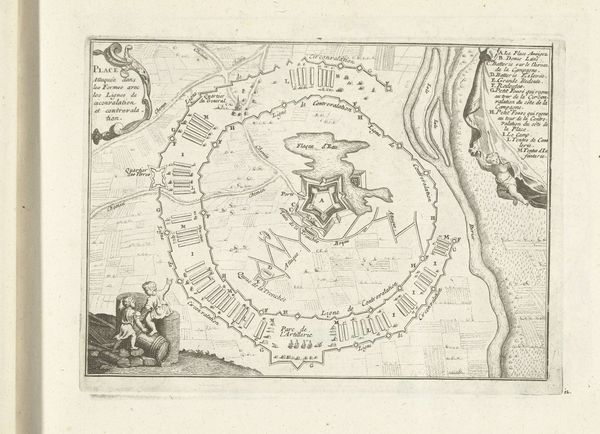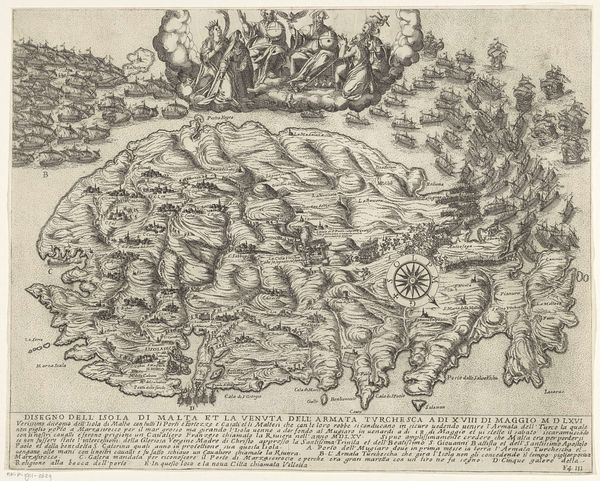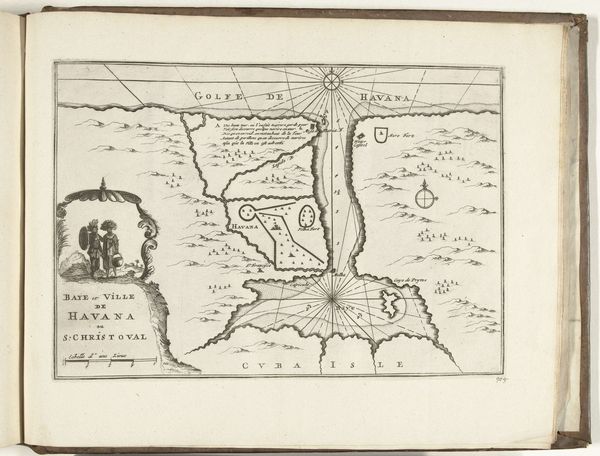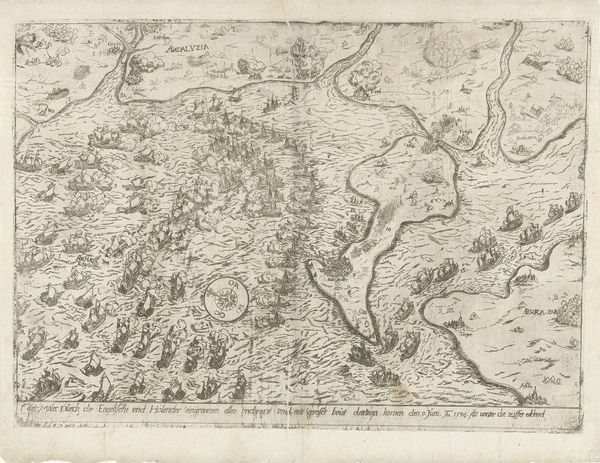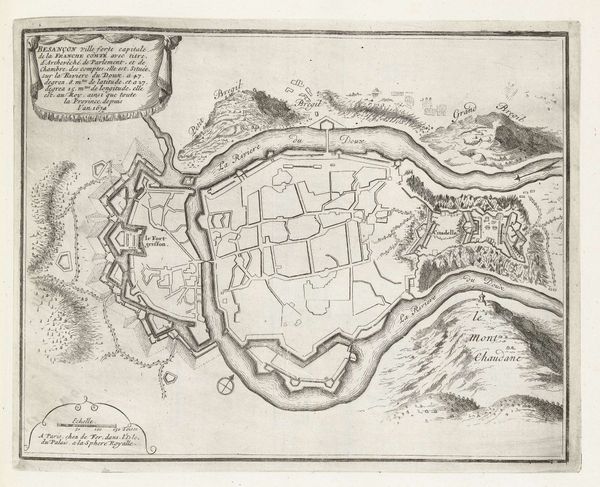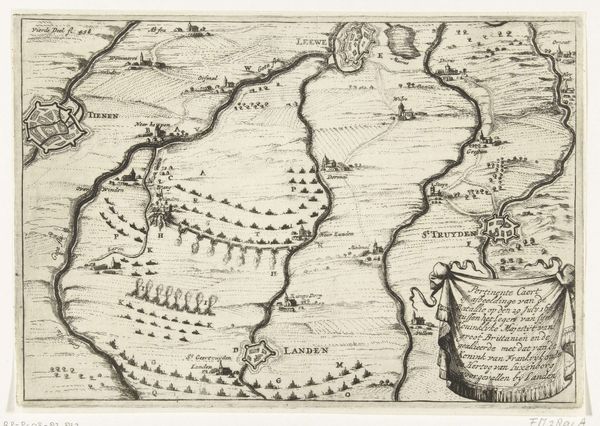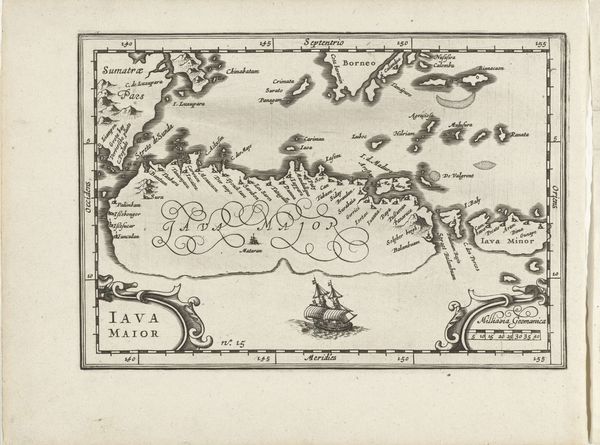
drawing, print, ink, pen, engraving
#
drawing
#
baroque
# print
#
pen illustration
#
old engraving style
#
ink line art
#
ink
#
pen-ink sketch
#
pen work
#
pen
#
cityscape
#
history-painting
#
engraving
Dimensions: height 222 mm, width 295 mm
Copyright: Rijks Museum: Open Domain
Editor: This engraving, "Bombardement van Ratzeburg, 1693", made around 1702-1703 by an anonymous artist, presents a bird's-eye view of a city under siege. It's incredibly detailed, but the bombardment is rendered in this almost clinical way. What stands out to me are the lines arching through the sky. What do you see in this piece? Curator: Indeed, the lines! They act as pathways, directing our eyes and, symbolically, representing not just projectiles but also the flow of power and intent. The Baroque period, though known for its grandeur, often used detailed cartography like this to express control, and this map meticulously charts a moment of violence. Think about how a seemingly neutral map becomes a record of destruction, embedding trauma within its lines. What does it tell us about memory and the way conflicts were, and still are, recorded? Editor: That's a powerful idea. So the act of mapping itself becomes a kind of...statement? It’s not just recording what happened, but shaping the narrative, too. Curator: Exactly. Notice how Ratzeburg is represented almost as a single, unified entity being acted upon. This visual language simplifies complex events into symbolic actions. Consider, also, the seemingly detached perspective – almost god-like in its scope. How might this influence the viewer's perception of the bombardment? Does it normalize violence by framing it within a seemingly ordered, understandable framework? Editor: I never considered the "god-like" perspective before. It does distance you from the human cost. This is more than just a drawing of an event, it’s about who controls the narrative and the impact of visualizing violence in this detached way. Curator: Precisely. A potent reminder that even seemingly objective images can carry a weighty cultural and emotional burden. Editor: I'll definitely look at historical images differently now.
Comments
No comments
Be the first to comment and join the conversation on the ultimate creative platform.
